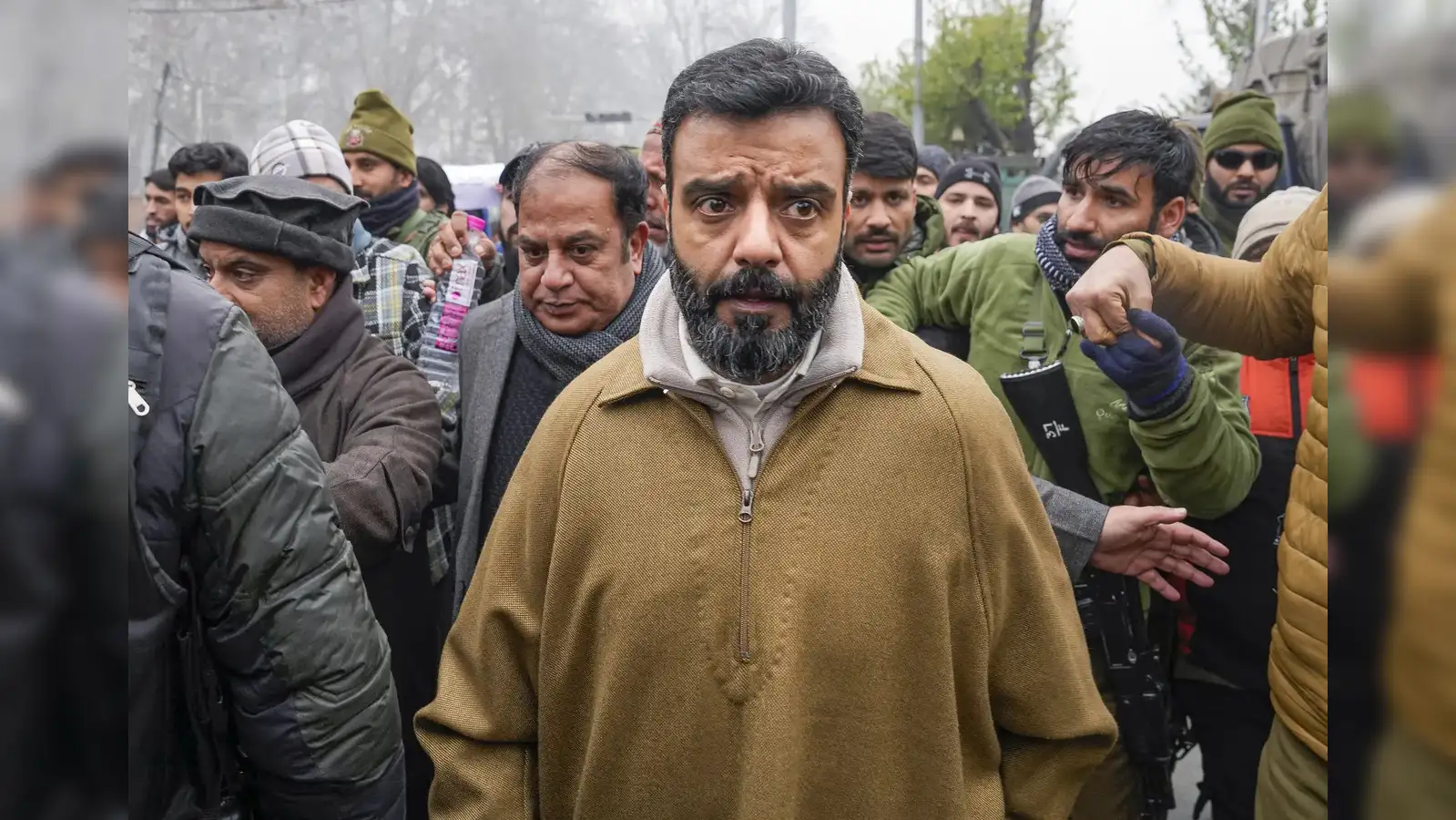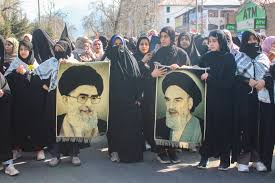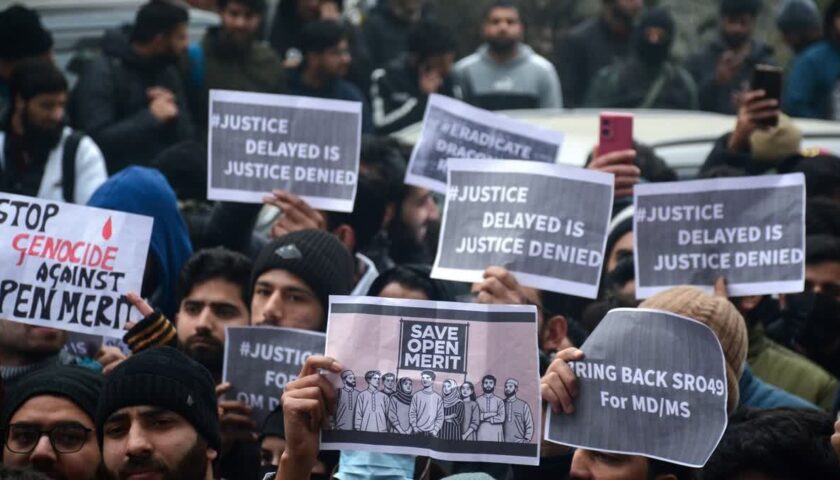Aga Ruhullah Excluded From NC Working Committee After 23 Years: What It Reveals About the National Conference’s Deepening Crisis
By: Javid Amin | 26 November 2025
Srinagar MP Aga Ruhullah Mehdi has publicly disclosed that he was not invited to the National Conference (NC) working committee meeting—a first since 2002. The move has triggered debate across Kashmir’s political landscape, with many interpreting it as the most visible sign yet of the widening gulf between Ruhullah and the Omar Abdullah–led NC leadership.
The working committee meeting, convened to analyse NC’s poor performance in the recent bypolls, was expected to be a show of unity and introspection. Instead, Ruhullah’s exclusion has overshadowed the party’s internal review process.
Key Revelations From Ruhullah’s Statement
1. First exclusion in 23 years
Ruhullah emphasized that he has been part of NC’s top-level deliberations since 2002, and there has never been a meeting where he was not invited.
2. Direct criticism of party leadership
He accused the NC of:
-
“failing to deliver on the people’s mandate”
-
“disconnecting from its base”
-
“ignoring public expectations, especially after electoral setbacks”
3. Context of electoral losses
The NC recently lost the Budgam bypoll to the PDP—a symbolic and strategic blow in the heart of the Valley.
4. Escalating ideological disagreements
Ruhullah has taken strong stances on:
-
Reservation policies
-
Youth protests
-
Justice for students
-
Post-abrogation political rights
Often, these positions challenge or contradict NC’s official line.
Context: Why This Moment Is Politically Explosive
The National Conference has struggled to recover since the 2019 abrogation of Article 370, and the recent bypoll losses have intensified scrutiny of its leadership. Aga Ruhullah has become one of the few NC leaders who:
-
speaks directly on issues of identity,
-
challenges the party’s silence on Delhi’s policies,
-
appeals to Kashmir’s youth and political conscience.
The leadership, especially Omar Abdullah, has adopted a more cautious stance—one that Ruhullah increasingly criticizes.
The working committee meeting was expected to address:
-
the shrinking party vote base,
-
the rise of the PDP in some pockets,
-
the growing influence of Apni Party and new independents,
-
youth disillusionment with traditional parties.
Instead, it is now remembered for who wasn’t in the room.
Why Ruhullah’s Exclusion Matters
1. A direct challenge to NC’s internal democracy
Aga Ruhullah is:
-
a two-time MLA,
-
a former cabinet minister,
-
and now a sitting MP.
Leaving him out of the highest decision-making body is not a clerical error—it is political signaling.
His exclusion raises fundamental questions:
-
Who decides the NC’s ideological line?
-
Do dissenters have space?
-
Is the party becoming personality-centric?
-
Are voices demanding stronger opposition to New Delhi being sidelined?
2. A message to dissenters
NC insiders say Ruhullah’s outspoken positions—especially his critique of “soft-pedaling” Article 370—have made the leadership uncomfortable.
The message is clear:
Fall in line, or stay outside the room.
3. Public perception could shift
Among Kashmiris—especially young, educated voters—Ruhullah is one of the few mainstream leaders seen as:
-
uncompromising,
-
authentic,
-
and politically grounded.
His exclusion risks alienating the very base NC claims to represent.
4. A potential fracture within the party
For years, the NC has managed internal disagreements quietly. This time, the conflict has spilled into the public domain.
And in Kashmir’s political environment, where:
-
PDP is making a comeback,
-
JKPC is positioning itself as an alternative,
-
Independents are rising,
-
and youth disillusionment is at an all-time high,
a split in NC ranks could significantly reshape the political map.
Aga Ruhullah vs. Omar Abdullah: A Brewing Ideological Clash
Ruhullah and Omar Abdullah represent two different idioms of Kashmiri politics.
Ruhullah represents:
-
Political identity
-
Moral accountability
-
Post-370 grievance
-
Direct criticism of central policies
-
Assertive Kashmiri representation
-
Engagement with youth protests and student politics
Omar represents:
-
Moderate-centrist politics
-
Pragmatic engagement with Delhi
-
Electoral repositioning
-
Attempted repositioning of NC as a “governance-first” party
-
Avoidance of direct confrontation with the Centre
-
A traditional, dynasty-led structure
Their political grammar is fundamentally different.
Ruhullah has repeatedly pushed NC to take a firmer ideological line after 2019. Omar has resisted turning the party into a confrontational force, especially with the BJP government.
The exclusion from the working committee is a manifestation of this deeper ideological divide.
The Bypoll Losses: Why They Threaten NC’s Stability
The loss of Budgam to PDP is more than a seat defeat:
-
It reveals a shifting sentiment at the grassroots.
-
Many NC loyalists stayed home or chose alternatives.
-
Youth turnout against traditional parties is rising.
-
PDP’s return in pockets signals a new competition.
-
NC’s vote share indicates erosion in core strongholds.
Ruhullah blames these setbacks on:
-
lack of ideological clarity,
-
leadership complacency,
-
and disconnect from people’s anxieties.
His exclusion from the review meeting further strengthens the perception that NC prefers loyalty over introspection.
Public Reactions: What Kashmiris Are Saying
Across social and local media circles, three themes stand out:
1. Youth Sympathy Toward Ruhullah
He is seen as:
-
honest,
-
courageous,
-
and unwilling to compromise on political truth.
Even non-NC supporters see his exclusion as a “punishment for speaking out.”
2. Anger at NC’s shrinking space for dissent
The NC has for decades projected itself as a party rooted in Kashmiri aspirations.
But this episode raises doubts about:
-
internal democracy,
-
ideological consistency,
-
and whether NC still represents Kashmiri sentiment.
3. Fears of a future split
Many speculate:
-
Will Ruhullah form his own faction?
-
Will he join another party?
-
Is this the beginning of a new political alignment in Kashmir?
While Ruhullah has not hinted at any exit, the ground is clearly shifting.
Strategic Impact: What This Means for the NC’s Future
1. Electoral Vulnerability
If even a small segment of NC’s base shifts toward PDP, PC, or new independents, the party risks losing entire districts in future elections.
2. Leadership Credibility at Risk
The Abdullah family’s hold over NC is already questioned in post-370 Kashmir.
Excluding a popular MP may reinforce perceptions of:
-
dynastic control,
-
unwillingness to hear criticism,
-
and a disconnect from ordinary voters.
3. Youth Disillusionment Could Deepen
NC cannot afford to alienate youth voices—especially in urban and semi-urban Kashmir.
4. Space for Alternatives Widens
The incident creates space for leaders who speak more directly on:
-
identity,
-
constitutional rights,
-
post-370 realities.
This is territory where Ruhullah holds significant moral advantage.
Conclusion: A Turning Point in Kashmiri Politics
Aga Ruhullah Mehdi’s exclusion from the NC working committee marks more than a personal snub—it is a political moment with far-reaching implications.
It raises unavoidable questions:
-
Is the NC ready for internal dissent?
-
Can Omar Abdullah’s leadership withstand ideological challenges?
-
Will the party learn from the bypoll setback, or silence those who speak truth to it?
-
And most critically:
Is the National Conference losing touch with the very constituency it claims to represent?
This episode may well be the first public sign of a far deeper realignment in Kashmiri mainstream politics, one in which voices like Ruhullah’s gain prominence as the traditional parties struggle to redefine themselves in a post-Article 370 landscape.




